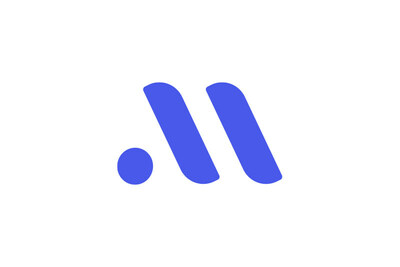Latest News
Retail investing startup Midas raises $45 million to roll out crypto, mutual fund, and savings account products
- The $45 million fundraise was led by Portage and is one of Turkey’s largest ever Series A rounds
- New capital will help Midas roll out a host of new product lines including crypto trading, mutual funds, and a savings product, with plans to double its headcount to 400+, and expand into emerging markets
- Midas hit profitability last year and, with two million users since its 2021 launch, the company is on course to revolutionize Turkey’s investing market, and expand into new markets
ISTANBUL, April 22, 2024 /PRNewswire/ — Midas, the fintech startup that brought retail investing to millions of people in Turkey, today announced that it has raised $45 million in equity funding. The new capital will allow Midas to expand and roll out three new products: cryptocurrency trading, mutual funds, and savings accounts.
It is the biggest ever Series A fundraise by a Turkish fintech, and comes less than three years after Midas was launched. The raise was led by Portage, with participation from International Finance Corporation, and Spark Capital, Earlybird Digital East Fund, and Revo Capital doubling down on their previous investment in the company’s $11 million seed round in 2022.
Since Midas launched in 2021, it has opened up Turkey’s retail investment market to more than two million users. Previously, users faced onerous transaction fees and high minimum balance requirements, sometimes of up to $25,000, to access US stocks. Via its app, Midas is the first company to offer fast, seamless access to Turkish and US equities with low commission fees.
Midas has also invested heavily in educating the market by producing easy-to-digest financial content for free. These include real-time stock market data and news, detailed company profiles, in-depth documentaries, a daily podcast, and a weekly newsletter to help investors navigate the markets. In doing so, it pioneers Turkey’s most comprehensive localized financial content offerings for investors.
The new funding will allow Midas to grow its offering to include access to mutual funds, an interest-generating savings product, and cryptocurrency trading. In the next two-to-five years, Midas also projects that it will expand beyond Turkey, with plans to target countries in emerging markets. With its new products and expansion plans, the company will now move forward with its mission of changing Turkish people’s relationship with money – not just investing – and becoming a leading financial institution in the region.
The raise also comes amid a global stagnation in fintech investments in the last two years, indicating continued investor confidence in Midas’ strategy of disrupting the market by prioritising the customer experience above all, and constantly improving the usability and low cost of its investment product
Egem Eraslan, CEO and founder of Midas, said: “We are delighted to announce our Series A fundraise, which is the biggest ever by a Turkish fintech. Just a few years ago, Turkey did not have a strong investing culture and the market was stagnant – but thanks to Midas, that is changing. We have already brought affordable, quick access to US and Turkish equities to millions of people in Turkey. This fundraise will allow us to expand our product suite further, with mutual funds, savings products, and cryptocurrency trading firmly in our sights. Longer term, we want to broaden our horizons and expand our geographic footprint beyond Turkey to become a prominent regional player.”
Paul Desmarais III, Co-Founder of Portage and CEO and Chairman of Sagard. “Midas is leading a wave of transformation within Turkey’s financial landscape. Globally, Portage invests in transformational financial technology and Midas is poised to lead that initiative in a region of early adopters. We are very pleased to participate in the development of Midas and to support this ambitious team in bringing financial inclusion and access to wealth-building tools to the Turkish people.”
The raise will also help Midas double its headcount. It currently has a team of 210 people working from its office in Istanbul, already triple the number of employees in 2022.
Eraslan continued: “We have a long-term view for this company, and short-term market conditions have not hindered that. The raise comes as a significant vote of confidence in our mission to transform investing in the region.”
Contact
Ben Goldsmith
[email protected]
+44(0)7788295321
About Midas
Founded in 2020, Midas makes investing effortless for first-time investors in Turkey via its fast, easy-to-use digital stock brokerage app.
Those factors meant there was a gap in the market for an app that enabled people to easily invest in Turkish and US stocks, which Midas has filled. Midas offers low transaction fees for investments in US stocks, fractional investing, and free live market data. The Borsa Istanbul (Turkish stock market) product offers commission-free trading of Turkish stocks.
To date, Midas has more than two million total users, and that number is projected to increase to five million by the end of 2024. Last year alone, it saved $70m in commissions for its customers.
Photo – https://mma.prnewswire.com/media/2388919/Midas_Team.jpg
Photo – https://mma.prnewswire.com/media/2388922/Midas_App.jpg
Photo – https://mma.prnewswire.com/media/2388934/Midas_Nasdaq.jpg
Logo – https://mma.prnewswire.com/media/2388921/Midas_Logo.jpg



![]() View original content:https://www.prnewswire.co.uk/news-releases/retail-investing-startup-midas-raises-45-million-to-roll-out-crypto-mutual-fund-and-savings-account-products-302122807.html
View original content:https://www.prnewswire.co.uk/news-releases/retail-investing-startup-midas-raises-45-million-to-roll-out-crypto-mutual-fund-and-savings-account-products-302122807.html

Latest News
Corlytics Hires New CTO, Chief Data Officer, and Chief Tech Architect
Corlytics, a leading provider of regulatory risk intelligence solutions, has announced the appointment of three key executives: a new Chief Technology Officer (CTO), Chief Data Officer (CDO), and Chief Tech Architect. These strategic hires are set to bolster Corlytics’ capabilities and drive its mission to deliver cutting-edge regulatory risk intelligence.
The New Appointments
Corlytics’ latest appointments include highly experienced professionals who bring a wealth of knowledge and expertise to the company.
Key Appointments:
- Chief Technology Officer (CTO): The new CTO will oversee the company’s technology strategy, ensuring that Corlytics remains at the forefront of innovation in regulatory risk intelligence.
- Chief Data Officer (CDO): The CDO will be responsible for managing and leveraging data to enhance Corlytics’ solutions, providing clients with deeper insights into regulatory risks.
- Chief Tech Architect: The Chief Tech Architect will focus on the technical architecture of Corlytics’ platforms, ensuring scalability, reliability, and security.
Enhancing Regulatory Risk Intelligence
With these strategic hires, Corlytics aims to enhance its regulatory risk intelligence offerings, providing clients with more comprehensive and actionable insights.
Enhanced Capabilities:
- Advanced Analytics: Leveraging advanced analytics to provide deeper insights into regulatory risks and trends.
- Data Integration: Improving data integration capabilities to provide a holistic view of regulatory risks across various jurisdictions and sectors.
- Scalable Solutions: Developing scalable solutions that can grow with clients’ needs, ensuring they remain compliant in an evolving regulatory landscape.
The Importance of Regulatory Risk Intelligence
In today’s complex regulatory environment, effective regulatory risk intelligence is crucial for financial institutions and other regulated entities.
Key Benefits:
- Risk Mitigation: Identifying and mitigating regulatory risks before they materialize can save organizations from significant financial and reputational damage.
- Compliance Management: Enhancing compliance management processes to ensure adherence to evolving regulations.
- Strategic Decision-Making: Providing data-driven insights that support strategic decision-making and long-term planning.
Corlytics’ Strategic Vision
The new hires align with Corlytics’ strategic vision of becoming a global leader in regulatory risk intelligence, leveraging technology and data to transform how organizations manage regulatory compliance.
Strategic Goals:
- Innovation: Continuing to innovate and develop cutting-edge solutions that address the evolving needs of clients.
- Global Expansion: Expanding Corlytics’ presence in key markets around the world.
- Client Focus: Maintaining a strong focus on client needs, delivering solutions that provide tangible value and support regulatory compliance efforts.
Future Prospects
With the addition of the new executives, Corlytics is well-positioned to drive future growth and innovation in the regulatory risk intelligence space. The company plans to leverage its enhanced capabilities to expand its market reach and deliver even greater value to clients.
Growth Opportunities:
- Product Development: Developing new products and features that address emerging regulatory risks and challenges.
- Partnerships: Forming strategic partnerships with other technology providers and regulatory bodies to enhance Corlytics’ solutions.
- Market Penetration: Increasing market penetration by targeting new industries and geographic regions.
Conclusion
The appointment of a new CTO, CDO, and Chief Tech Architect marks a significant milestone for Corlytics. These strategic hires will enhance the company’s capabilities, driving innovation and delivering greater value to clients. As Corlytics continues to expand and innovate, it is well-positioned to lead the regulatory risk intelligence market and support organizations in managing their regulatory compliance challenges.
Source of the news: Fintech Futures
The post Corlytics Hires New CTO, Chief Data Officer, and Chief Tech Architect appeared first on HIPTHER Alerts.
Latest News
Instant Payments Regulation: Overview for Banks and Corporate Treasurers
The regulation of instant payments is becoming increasingly important as both banks and corporate treasurers seek to leverage faster, more efficient payment solutions. This article provides an overview of instant payments regulation, highlighting the key considerations and implications for banks and corporate treasurers.
What Are Instant Payments?
Instant payments refer to electronic payments that are processed in real-time or near real-time, enabling the transfer of funds between accounts within seconds. These payments can be initiated and completed at any time, providing convenience and efficiency for both individuals and businesses.
Key Characteristics:
- Speed: Funds are transferred almost instantly, reducing the time taken for payment settlement.
- Availability: Instant payments can be made 24/7, including weekends and holidays.
- Irrevocability: Once initiated, instant payments cannot be reversed, ensuring finality of the transaction.
Regulatory Landscape
The regulation of instant payments varies across different jurisdictions, with a focus on ensuring security, efficiency, and interoperability of payment systems.
Key Regulations:
- EU Regulation on Instant Payments: The EU has implemented specific regulations to promote the adoption of instant payments, ensuring that payment service providers offer these services to customers.
- PSD2: The Second Payment Services Directive (PSD2) in the EU includes provisions that support the development and regulation of instant payments.
- Local Regulations: Various countries have their own regulations and guidelines to govern instant payments, focusing on aspects such as fraud prevention, consumer protection, and technical standards.
Implications for Banks
Banks play a critical role in the provision of instant payments and must navigate the regulatory landscape to ensure compliance and provide seamless services to customers.
Key Considerations for Banks:
- Compliance: Banks must comply with relevant regulations and guidelines to offer instant payment services. This includes adhering to technical standards and implementing robust security measures.
- Infrastructure: Investing in the necessary infrastructure to support real-time payment processing and ensure system reliability and availability.
- Customer Education: Educating customers about the benefits and features of instant payments, as well as any potential risks associated with their use.
Implications for Corporate Treasurers
Corporate treasurers can benefit significantly from the adoption of instant payments, which can enhance cash flow management and improve operational efficiency.
Key Considerations for Corporate Treasurers:
- Cash Flow Management: Instant payments can improve cash flow management by reducing the time taken for payment settlement and providing real-time visibility into account balances.
- Operational Efficiency: Faster payment processing can streamline business operations, reducing administrative burdens and improving supplier relationships.
- Risk Management: Corporate treasurers must be aware of the irrevocability of instant payments and implement appropriate controls to prevent fraudulent transactions.
Benefits of Instant Payments
The adoption of instant payments offers several benefits for both banks and corporate treasurers, driving efficiency and enhancing the customer experience.
Key Benefits:
- Convenience: Instant payments provide a convenient and efficient way to transfer funds, reducing the reliance on traditional payment methods.
- Cost Savings: Faster payment processing can reduce the costs associated with payment settlement and reconciliation.
- Enhanced Customer Experience: Offering instant payment services can enhance the customer experience, providing greater flexibility and speed in financial transactions.
Challenges and Future Trends
While instant payments offer numerous benefits, there are also challenges that banks and corporate treasurers must address to fully leverage these services.
Key Challenges:
- Security Risks: Ensuring the security of instant payments is critical, particularly given the speed and irrevocability of transactions.
- Interoperability: Achieving interoperability between different payment systems and networks is essential for the widespread adoption of instant payments.
- Regulatory Compliance: Navigating the complex regulatory landscape and ensuring compliance with relevant regulations can be challenging.
Future Trends:
- Increased Adoption: The adoption of instant payments is expected to continue growing, driven by regulatory support and customer demand.
- Technological Advancements: Advances in technology, such as blockchain and artificial intelligence, are likely to further enhance the capabilities and security of instant payments.
- Global Standardization: Efforts to develop global standards for instant payments will promote interoperability and facilitate cross-border transactions.
Conclusion
The regulation of instant payments is crucial for ensuring the security, efficiency, and interoperability of payment systems. Banks and corporate treasurers must navigate the regulatory landscape and invest in the necessary infrastructure to provide seamless and secure instant payment services. As the adoption of instant payments continues to grow, it offers significant benefits for enhancing cash flow management, operational efficiency, and the overall customer experience.
Source of the news: The Paypers
The post Instant Payments Regulation: Overview for Banks and Corporate Treasurers appeared first on HIPTHER Alerts.
Latest News
Regulators Issue Joint Warning on Bank-Fintech Risks
Regulators have issued a joint warning highlighting the risks associated with partnerships between banks and fintech companies. This warning underscores the need for careful management of these relationships to ensure regulatory compliance and mitigate potential risks.
Overview of the Joint Warning
The joint warning, issued by a coalition of financial regulators, emphasizes the importance of robust risk management practices when banks partner with fintech companies. These partnerships, while beneficial in driving innovation and enhancing customer services, also introduce new risks that must be addressed.
Key Points of the Warning:
- Regulatory Compliance: Banks must ensure that fintech partners comply with all relevant regulations and standards.
- Risk Management: Robust risk management frameworks must be in place to identify, assess, and mitigate risks associated with fintech partnerships.
- Data Security: Ensuring the security and privacy of customer data is paramount, particularly given the increasing prevalence of cyber threats.
- Operational Resilience: Banks must ensure that fintech partnerships do not compromise their operational resilience and ability to deliver critical services.
Benefits of Bank-Fintech Partnerships
Despite the risks, partnerships between banks and fintech companies offer significant benefits, driving innovation and enhancing the customer experience.
Key Benefits:
- Innovation: Fintech companies bring innovative technologies and solutions that can enhance banking services and products.
- Customer Experience: Partnerships with fintechs can improve the customer experience by offering faster, more efficient, and personalized services.
- Cost Efficiency: Fintech solutions can help banks reduce costs and improve operational efficiency through automation and digitalization.
Risks Associated with Bank-Fintech Partnerships
The joint warning highlights several risks associated with bank-fintech partnerships that must be carefully managed.
Key Risks:
- Regulatory Risk: Ensuring compliance with complex and evolving regulatory requirements is a significant challenge.
- Cybersecurity Risk: Fintech partnerships can introduce cybersecurity vulnerabilities, making it essential to implement robust security measures.
- Operational Risk: The integration of fintech solutions into banking operations can pose operational risks, particularly if not managed effectively.
- Reputational Risk: Any issues or failures in fintech partnerships can damage the bank’s reputation and customer trust.
Strategies for Managing Risks
To mitigate the risks associated with fintech partnerships, banks must adopt comprehensive risk management strategies and ensure rigorous oversight.
Key Strategies:
- Due Diligence: Conducting thorough due diligence on fintech partners to assess their regulatory compliance, security practices, and financial stability.
- Contractual Safeguards: Including robust contractual safeguards in partnership agreements to outline responsibilities, expectations, and compliance requirements.
- Continuous Monitoring: Implementing continuous monitoring and assessment of fintech partnerships to identify and address emerging risks.
- Collaboration with Regulators:: Engaging with regulators to ensure that partnerships comply with regulatory requirements and to stay informed of any changes in the regulatory landscape.
The Role of Technology
Technology plays a crucial role in managing the risks associated with bank-fintech partnerships, offering tools and solutions that enhance oversight and compliance.
Key Technologies:
- RegTech Solutions: Regulatory technology (RegTech) solutions can automate compliance processes, ensuring that fintech partnerships adhere to regulatory requirements.
- Cybersecurity Tools: Advanced cybersecurity tools and solutions can enhance the security of fintech partnerships, protecting against cyber threats.
- Risk Management Platforms: Integrated risk management platforms can provide real-time visibility into partnership risks and support proactive risk mitigation.
Conclusion
The joint warning issued by regulators highlights the need for careful management of bank-fintech partnerships to ensure regulatory compliance and mitigate potential risks. While these partnerships offer significant benefits, including innovation and enhanced customer experience, they also introduce new risks that must be addressed through robust risk management strategies. By leveraging technology and engaging with regulators, banks can effectively manage these risks and capitalize on the opportunities presented by fintech partnerships.
Source of the news: American Banker
The post Regulators Issue Joint Warning on Bank-Fintech Risks appeared first on HIPTHER Alerts.
-
Latest News6 days ago
China remains stabilizing force for global economic growth
-
Latest News4 days ago
Martello Re announces closing of $1.3 billion capital raise consisting of $935 million in equity and a $360 million upsize of the Company’s credit facility
-
Latest News5 days ago
Kylian Mbappé and Accor Forge Alliance to Empower Younger Generations
-
Latest News5 days ago
Market Dojo Celebrates Prestigious Inclusion in Ardent Partners 2024 Strategic Sourcing Technology Advisor
-
Latest News5 days ago
BioCatch completes best first half in company history, grows ARR by 43% YoY
-
Latest News5 days ago
COP28 President calls on all stakeholders to bring spirit of solidarity that delivered UAE Consensus to drive implementation and sustainable socio-economic development
-
Latest News2 days ago
Driving Innovation Forward: CFI Welcomes Seven-Time Formula 1™ World Champion Lewis Hamilton as new Global Brand Ambassador
-
Latest News20 hours ago
Consello announces appointments of Lord Mervyn Davies, Sir Sajid Javid, Anne Finucane, Carmine Di Sibio and Frank Ryan as Senior Advisors




